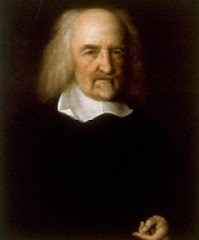In De Cive, Hobbes says that drunkenness and cruelty are violations of natural law; “For I cannot see what drunkenness or cruelty (which is vengeance without regard to a future good) contribute to any man’s peace or preservation” (III.27n). I’ve always wondered about this passage. First, does anyone have any thoughts on what might be behind the drunkenness constraint? It seems plausible to say that in the state of nature, being drunk would only increase one’s vulnerability. But this doesn’t seem like enough to motivate an absolute prohibition on drunkenness. In Leviathan, Hobbes compares the actions of drunk men to the actions of madmen (8.23). So perhaps he is merely saying that he cannot imagine a situation in which acting like a madman could be conducive to a person’s preservation. Second and more importantly, given that the right of nature is the right to anything one judges conducive to one’s self-preservation, does that mean that the famous “right to all things” doesn’t include the right to be drunk or cruel?
Sunday, July 27, 2008
Subscribe to:
Post Comments (Atom)

4 comments:
This is a brilliant and difficult question. My own view (argued in Cases in the Law of Nature) is that the basic problem with drunkenness is that it deprives us of capacity to appreciate and apply the laws of nature. Knowing what is right, while disabled from acting on that knowledge, is useless. Drunken men cannot be agents at all.
Drunken men do exhibit high passions, as Hobbes notes. Like crazy people, on emotional overdrive. But mere preservation is not the be all and end all for Hobesian men. Pride and self-exhibition means most to them, and so even with respect to narrow self-interest, being drunk and so out of control would be a liability.
I submit that the state of nature argument would only be applicable if there was no government. You have the right to pursue whatever you want, unless there's a sovereign to keep you "in awe,' non?
Nice blog!
Hobbes would see drunkeness as a violation of Puritan belief. Hobbes was in support of Cromwell, and fled to France to avoid the fall of Cromwell and Cromwell's Parliament. Hobbes was not an atheist, and contrary to a former comment here, was by no means in favor of a do what you please if it feels good attitude.
Daniel,
Nobody said that Hobbes was an atheist, though his religious views are in question. I think there is more evidence that he was influenced by English Deists than that he was a Puritan. After Galileo's conviction, Hobbes quickly burned many of his papers, which is a rather suggestive act.
Hobbes did, in fact, think that in a state of nature, man was rationally justified in pursuing whatever action was in his best self-interest. It's not a matter of "whatever feels good." Insofar as Hobbes thought that life without a sovereign is a war of all against all, an atomic individual's best self-interest was motivated by preservation, and gaining advantage on competing individuals (which was everyone else).
Great discussion here!
Post a Comment